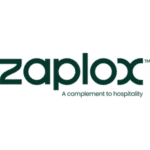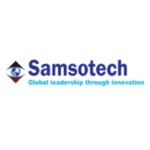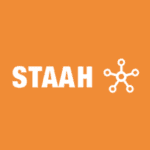 When you think of revenue management, which is the first department that comes to mind?
When you think of revenue management, which is the first department that comes to mind?
If you’re like most in the hotel industry, you will associate revenue management only with revenue managers and the revenue management team; however, the reality is a very different story: revenue management is actually very important (and has different, but equally important benefits) for leadership across all departments, including hotel owners/operators, hotel managers/General Managers and, even, the front desk manager.
Surprised? Don’t worry, I’ll explain….
Revenue management is, at its core, the practice of analyzing and predicting consumer demand to optimise room inventory and price rooms to maximise bookings and revenue growth. In effective strategic revenue management, your goal is to not only fill rooms but also maximize profitability on each booking, in both peak and off-peak seasons.
A revenue management strategy is most effective if it is applied across all the departments in the commercial team (including marketing, sales and revenue management), plus supported by the owner/operator, Hotel Manager and Front Desk Manager. All these internal departments should be invested in ensuring the hotel’s financial success, as they all have a direct impact on whether success is achieved; as such, it’s important to understand the key benefits of revenue management for each of these roles, to understand what they can do to maximise the ROI on the property’s strategic revenue management efforts and, as a result, its long-term profitability.
So, let’s examine the key benefits of revenue management for each position and how it can be leveraged to boost the property’s overall profitability.
The benefits of revenue management for hotel owners/operators
There are many benefits of implementing a data-based revenue management practice at a property, especially for the owners/operators who are responsible for ensuring that the hotel remains financially viable.
Boost the bottom line
By analysing demand patterns, a hotel’s RMS can update prices to fill more rooms at the highest possible rate, enhancing both occupancy and ADR. By finding the proper balance between price, market demand and guest expectations, hotels can increase online bookings and improve the guest experience. It has been proven that increased guest satisfaction can lead to repeat business and more positive reviews, which are shown to increase the property’s perceived value, enabling the property to increase their ADR over time.
But here’s an important caveat… an RMS is critical to a property’s success in today’s highly competitive landscape but there’s another important factor to consider, which is integral for optimal revenue management: the human element.
A hotel’s staff plays a crucial role in interpreting, contextualizing and executing the insights generated by RMS. To be most effective, training staff in revenue management principles goes beyond the operational elements; hotel owners and operators must create a revenue management-first culture. When all team members understand and embrace the importance of revenue management, they can collectively contribute to the hotel’s revenue optimisation goals and maximise the ROI on the property’s revenue management activities.
Remain competitive
Revenue management systems provide benchmarking data that allows hoteliers to compare their performance against their comp set, which is crucial for identifying competitive advantages and areas that need improvement in a property’s operational and pricing strategy.
Enables better strategic leadership decisions
Revenue management can also inform broader strategic leadership decisions, such as hotel expansions, renovations, service offerings and staff training programs.
The benefits of revenue management for hotel managers
For Hotel Managers (or General Managers), a deep understanding of revenue management is imperative for driving revenue growth, ensuring guest satisfaction and achieving long-term profitability.
Forecasting and demand prediction
Effective revenue management is predicated on the ability to forecast future demand accurately. There are two ways to predict future demand: manual analysis of past and current booking trends, market conditions and external factors (such as events or holidays) or by using automated pricing technology that will do all the data collection and analysis automatically, in real-time, freeing up the Hotel Manager to focus his attention on strategic decision-making and on improving the guest experience. Obviously, the latter is a much more effective use of the Hotel Manager’s time, as manual data analysis is time-consuming and is prone to human error.
Market segmentation and price optimization
A crucial aspect of revenue management is identifying the most common market segments that make up a property’s guests. Each segment has unique booking behaviours and price sensitivities, so Hotel Managers need to understand each segment and how to best set their rates to appeal to the property’s most profitable segments, optimising occupancy and ADR.
Distribution and channel management
A hotel’s visibility across various distribution channels is critical, as it will directly impact the property’s long-term profitability; knowledge of the cost-benefit analysis of each channel and how to leverage them for maximum exposure and profitability is essential for a Hotel Manager’s success in revenue management.
The art of hospitality
A Hotel Manager must understand how pricing impacts the guest’s perception of their overall experience to develop revenue management strategies that will bring in new business and ensure that each guest has the optimal stay experience. To accomplish this, Hotel Managers should use guest data (from the CRM) to personalize guests’ experiences, create targeted promotions based on current market demand and build loyalty programs that drive repeat business and attract new customers through positive word-of-mouth.
The benefits of revenue management for front desk managers
The Front Desk Manager is a central figure at a hotel because they ensure the optimal guest experience and are tasked with maximising operational efficiency. When you remember that revenue management is a strategic approach that not only boosts profitability but also significantly enhances guest satisfaction, it makes it easy to understand that revenue management activities should be intertwined with the roles and responsibilities of a Front Desk Manager, as it will ultimately elevate the guest experience and, as such, improve the hotel’s overall long-term profitability.
Dynamic pricing: a win-win for guests and hotels
A common concern for many hoteliers (especially Front Desk Managers) is that guests will be upset and feel “ripped off” if a hotel implements dynamic pricing but that isn’t correct. A 2023 ZHAW University study of hotels using RoomPriceGenie’s automated pricing solution proved that guests’ overall satisfaction actually increased after the implementation of the solution, showing that dynamic pricing is a very positive revenue management strategy, both for hotels’ overall profitability and guest satisfaction.
Effective forecasting = more effective operational planning
Another important part of modern revenue management is forecasting, in which future demand is predicted based on historical data, current booking trends, market analysis, and other external factors like local events, economic conditions, seasonal variations, etc. This information is valuable for the Front Desk Manager, as it can help them make better, data-based decisions on important questions such as staffing, housekeeping schedules, hiring, etc. – all of which fall under the Front Desk Manager’s prevue and which will ensure smoother operations, reduce guest wait times and improve service quality.
Better understanding of guest travel behaviours and needs
Revenue management requires a deep understanding of market segments and guest behaviour, and by using this information, the Front Desk Managers can set more accurate expectations for guests and communicate more effectively. Whether it’s explaining the reasoning behind the room rates or setting the right expectations about availability and services, informed communication fosters trust and improves overall guest satisfaction.
The Front Desk Manager can also use this data to offer personalized experiences to guests; whether it’s automatically booking a returning guest into their preferred room type or leaving a bottle of red wine (their favourite) in the room to thank them for their continued business, this level of personalization goes a long way in making guests feel valued and understood.
As you can see, each of these three roles are integral to the success of a property’s revenue management strategy.
So, I challenge every Hotel Manager, owner/operator and Front Desk Manager to make the most important move necessary to set your property up for future success: implement automated pricing technology at your property to support the implementation of data-backed, strategic revenue management at your property today.
There’s absolutely nothing to lose and everything to win!




















